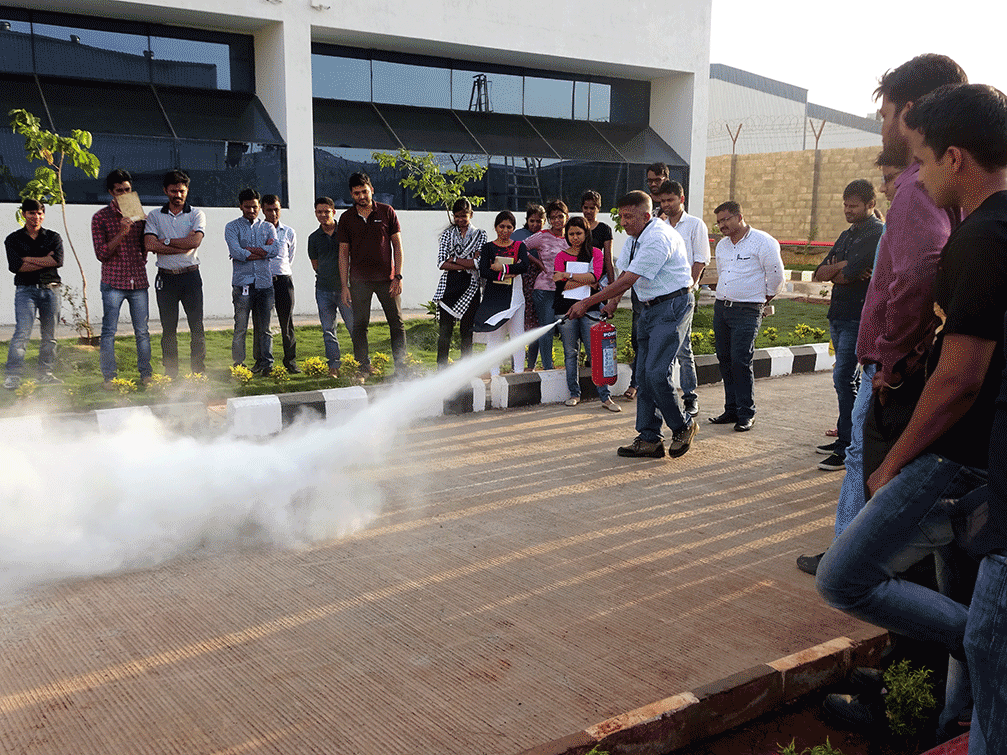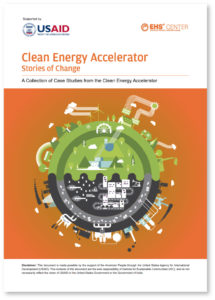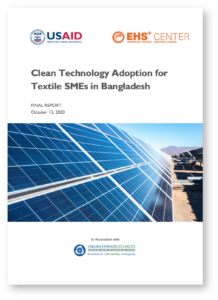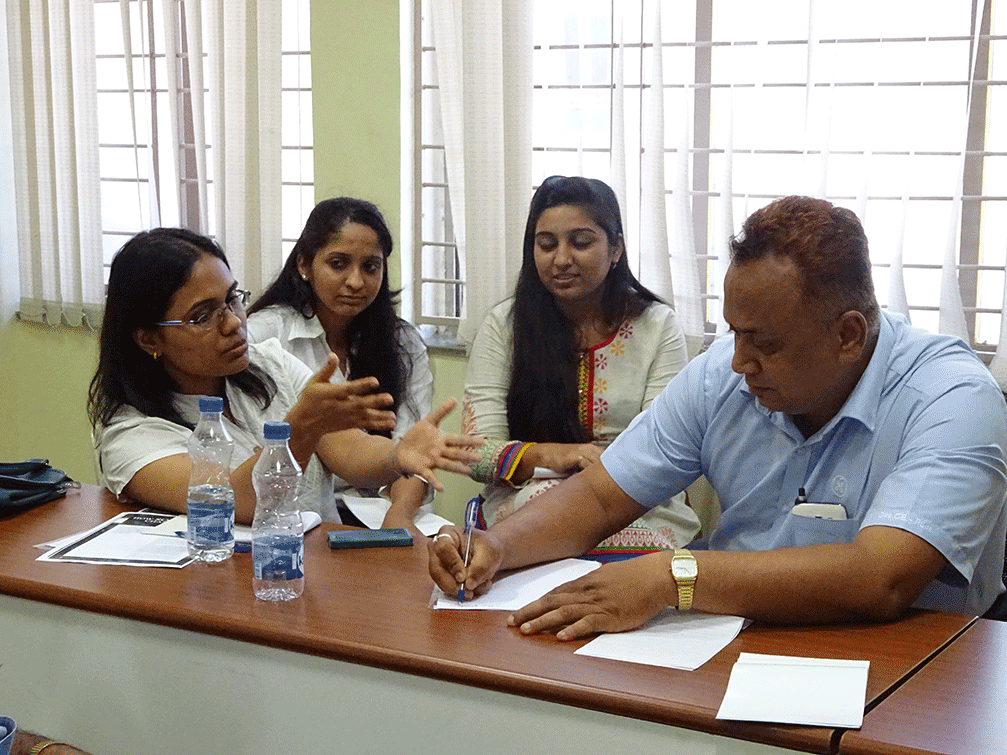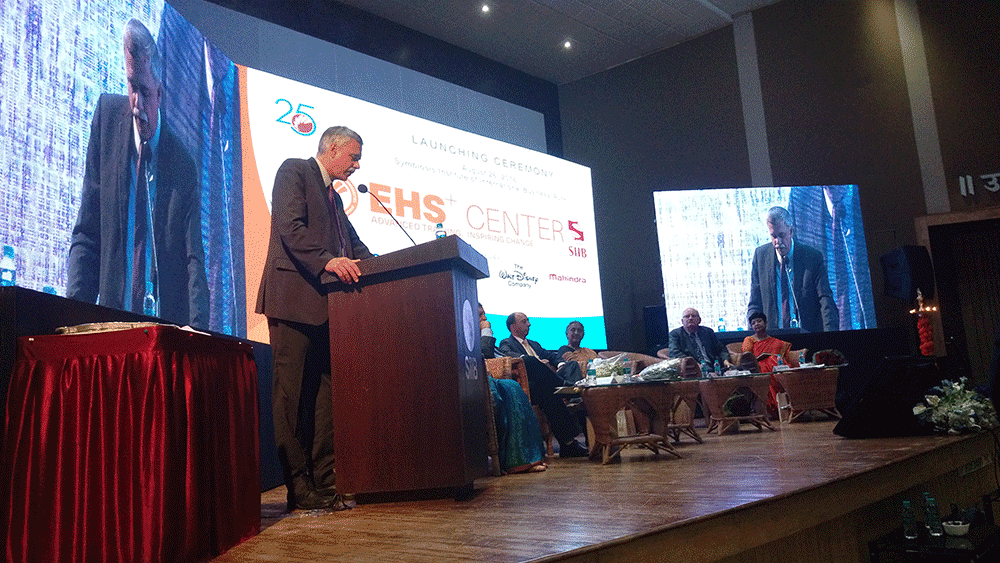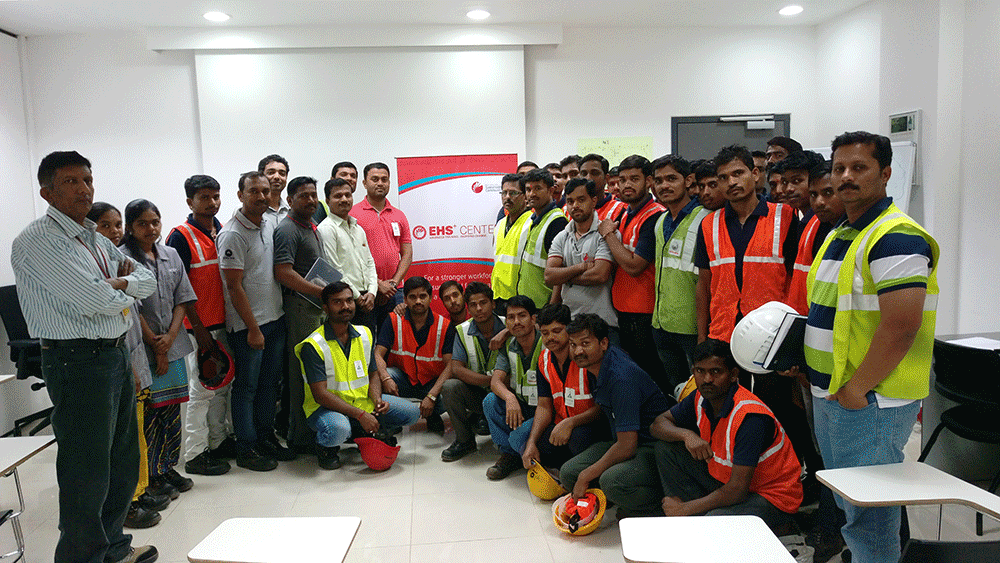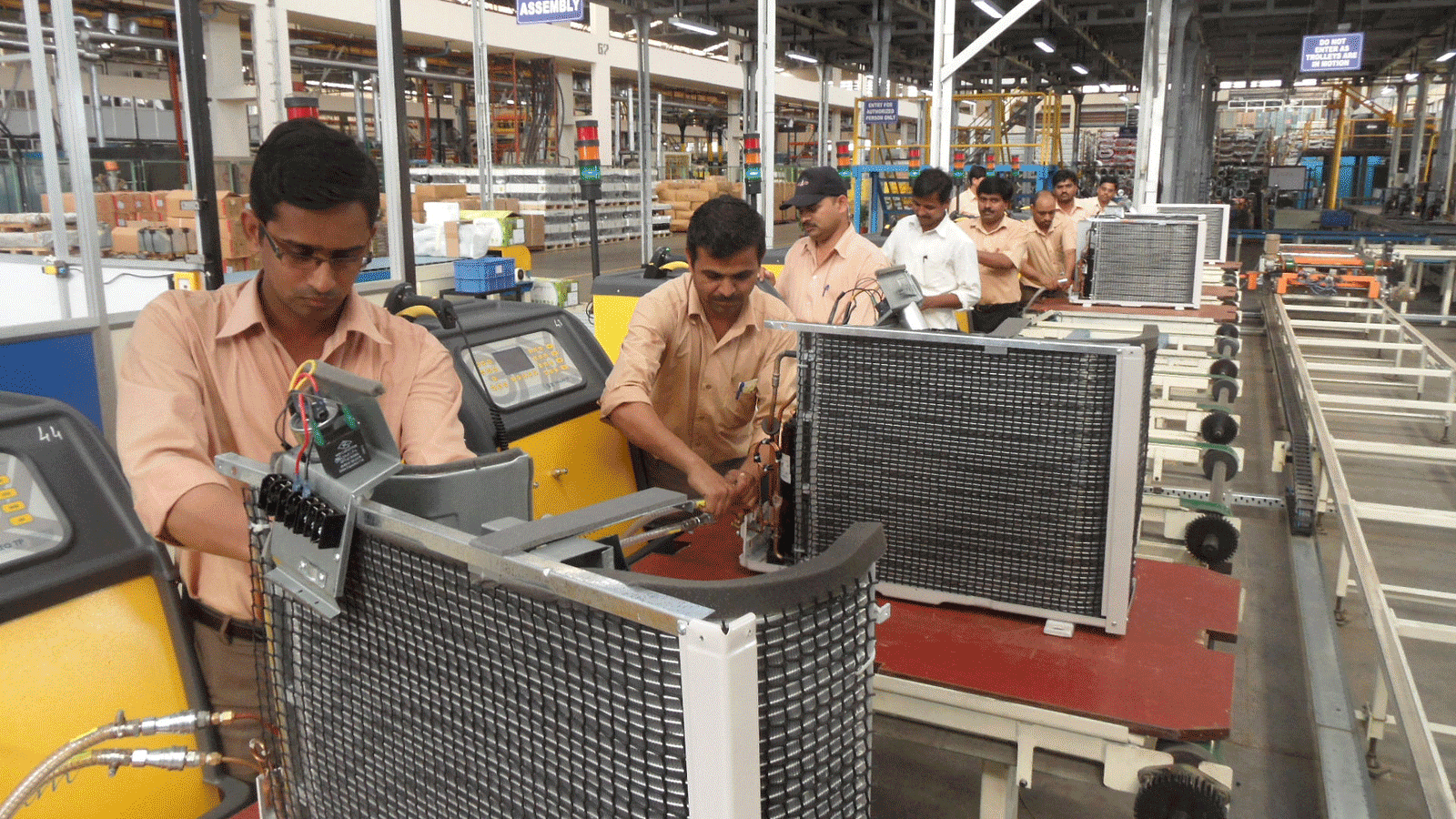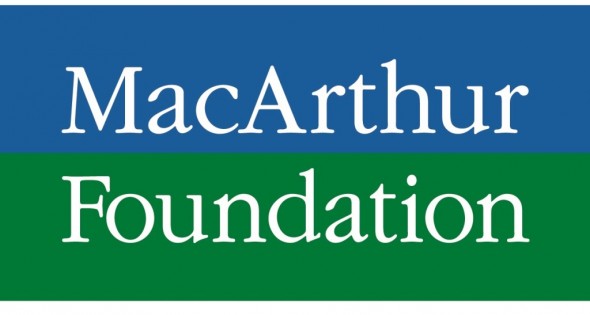EHS+ Center – India
ISC’s EHS+ Center customized environment, health, safety, and energy training and assistance to factory workers and managers on-site and in the classroom throughout India. These trainings focus on increasing resource efficiency, enhancing gender equity and empowerment, and reducing greenhouse gas emissions.
A wide selection of cost-effective courses and programs were designed to help those in the textile, construction, automotive, and chemicals/pharmaceuticals sectors save money through safety and efficiencies, while emphasizing how to be a good citizen by supporting key Indian initiatives such as Made in India and Clean India Mission.
The EHS+ Center provided factory assessments, technical assistance, and trainings and workshops.
The factory engagement program, funded by Mahindra & Mahindra, provided select factories with complete Energy & Environment, Health and Safety (EHS) audits. Once those audits were completed, select factories had access to subsidized technical support and mentoring to make improvements.
Hands-on technical assistance helped factory workers and managers adopt global best operating practices to save factories money, create safer working spaces, and sustain neighbouring communities, and the environment.
Finally, through trainings and workshops, we provided industry- specific skill sets, expertise and technology knowledge managers and factory workers needed to improve health and operational safety, and increase energy efficiency in the workplace.
“The EHS+ Center is expanding its scope through expertise across various environments, health and safety initiatives. This is a very good service help from ISC and the EHS+ Center to its clients.“
-Deepak Mugadaur (Corporate EHS Advisor)
Publications
Clean Energy Accelerator: Stories of Change
This booklet curates the impact and success stories of the Clean Energy Accelerator (CEA) project in the textile manufacturing industries located in the Tirupur Industrial Cluster, Tamil Nadu. A short case study format is followed to highlight the different clean technologies and energy efficiency measures adopted by the factories. The positive impacts are showcased as improvements in energy performance, reduced cost of production, enhanced profitability for small and medium factories, decreased use of non-renewable resources (coal and firewood) and overall reduction in greenhouse gas emissions, among others. These impacts arise from a series of detailed energy audits and technical assistance services provided to wet processing textile factories by the energy experts from the Institute for Sustainable Communities (ISC).
These efforts are a part of the Clean Energy Accelerator under the EHS+ Center Program implemented by ISC and supported by the U.S. Agency for International Development (USAID).
Clean Technology Adoption for Textile SMEs in Bangladesh Report
With USAID’s support, ISC has achieved significant impact in advancing clean technology adoption in India through its EHS+ Center program and its Clean Energy Accelerator component. The goal of the Clean Energy Accelerator (CEA) is to accelerate the deployment of energy efficiency and renewable energy measures among Small and Medium Enterprises (SMEs) in India’s Textile Sector. The project is designed to reduce emissions through the demonstration, dissemination and adoption of SME-relevant clean energy technologies.
As Bangladesh is a major hub for textile industries in South Asia, an effort has been made to extend the learning from textile industries in India to Bangladesh, and explore the feasibility of using demand aggregation-based models for large scale clean technology adoption in Textile Industries in Bangladesh. In this regard, a study was conducted in Bangladesh to identify the barriers and opportunities to adoption of energy efficiency and renewable energy technologies by the textile sector there.
The study has produced a comprehensive report- “Clean Technology Adoption for Textile SMEs in Bangladesh”. To understand the five key challenges to clean tech adoption within Textile Industries in Bangladesh, and for insights into their potential solutions, download the report here.


